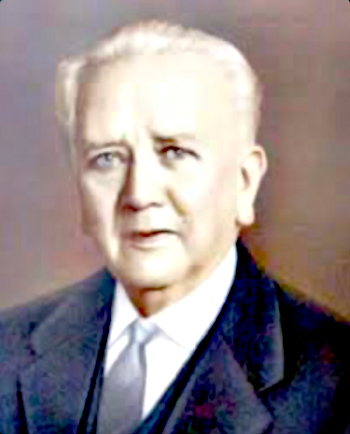Pío Jaramillo Alvarado (Loja, May 17, 1884 – July 24, 1968) was an Ecuadorian writer, liberal lawyer, politician, law professor and sociologist. His best-known book El indio ecuatoriano (1922; The Ecuadorian Indian), established him as one of Ecuador’s leading intellectuals and a key participant of the indigenista movement. Born to a white mestizo family, he critiqued indigenous realities from a non-indigenous perspective, which is typical of early twentieth century indigenistas. In 1940 he led the Ecuadorian delegation to the Pátzcuaro Congress in Mexico that founded the Interamerican Indigenist Institute (III). Three years later he helped found the Ecuadorian Indigenist Institute (IIE), for which he subsequently served as director. He contributed essays to newspapers throughout the country, most significantly under the pseudonym Petronio in the liberal newspaper El Día.
Politics
On occasion, he served as governor and deputy of his native province of Loja.
Education
Jaramillo Alvarado earned a doctor of jurisprudence degree and engaged in an intensive study of his national reality. He subsequently taught law at the Central University in Quito and the University of Guayaquil.
Works
- El indio ecuatoriano (The Ecuadorian Indian), originally published in 1922. He significantly rewrote the book for subsequent editions in 1925, 1936, and 1954.
- Del agro ecuatoriano (Of Ecuadorian Land; 1936) extended his discussion of issues facing Ecuador’s rural peoples.
- El Ecuador y el canal de Panamá (1913), read it for free here.
- La doctrina liberal : (Hombres e ideas en el Ecuador) Don Abelardo Moncayo y su época (1923), read it for free here.
- Memoria del Hospital de Loja (1916), read it for free here.
- La Presidencia de Quito : Memoria histórico jurídica de los orígenes de la Nacionalidad Ecuatoriana y de su defensa territorial (1938), read it for free here.
- Ferrocarriles al Oriente de Ambato al Curaray; de Machala a Cuenca; de Puerto Bolívar por Loja al Marañon (1922), read it for free here.
- La Asamblea Liberal y sus aspectos políticos (1924), read it for free here.

